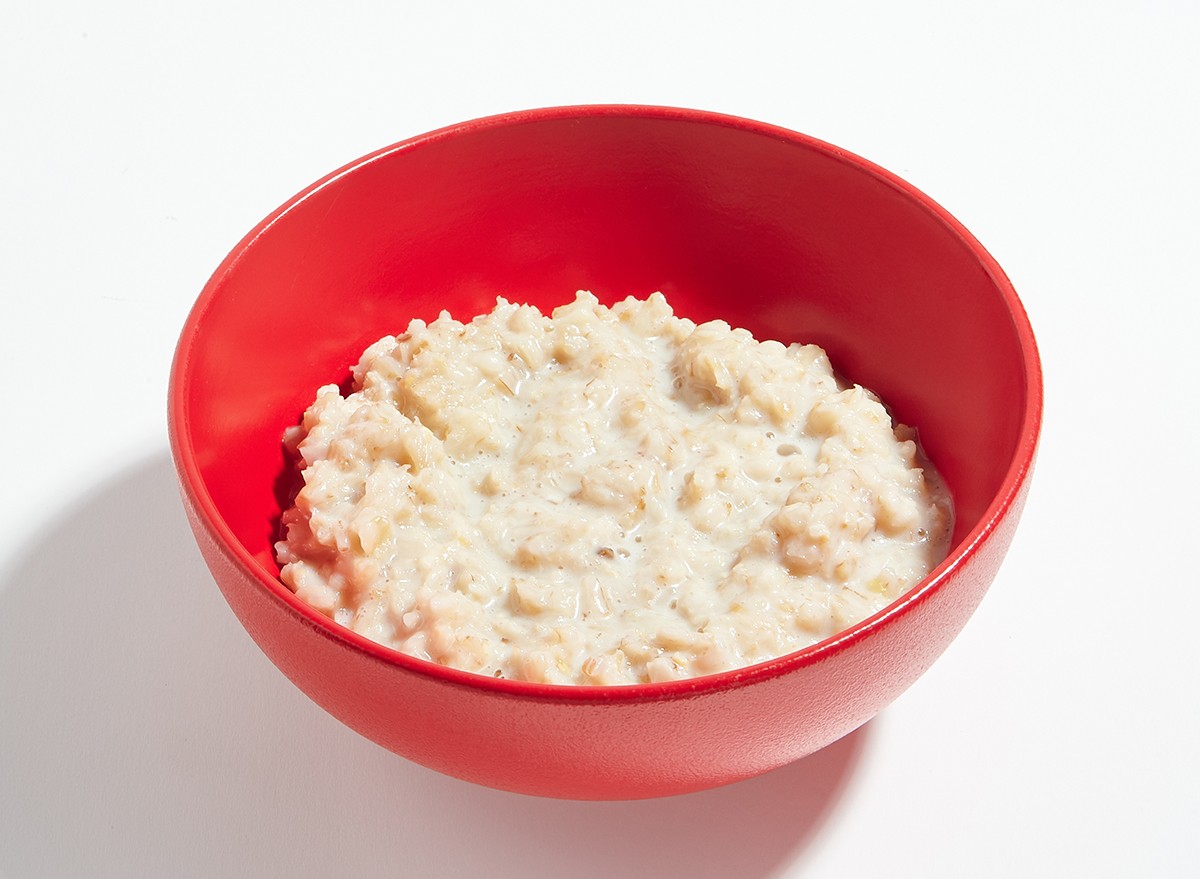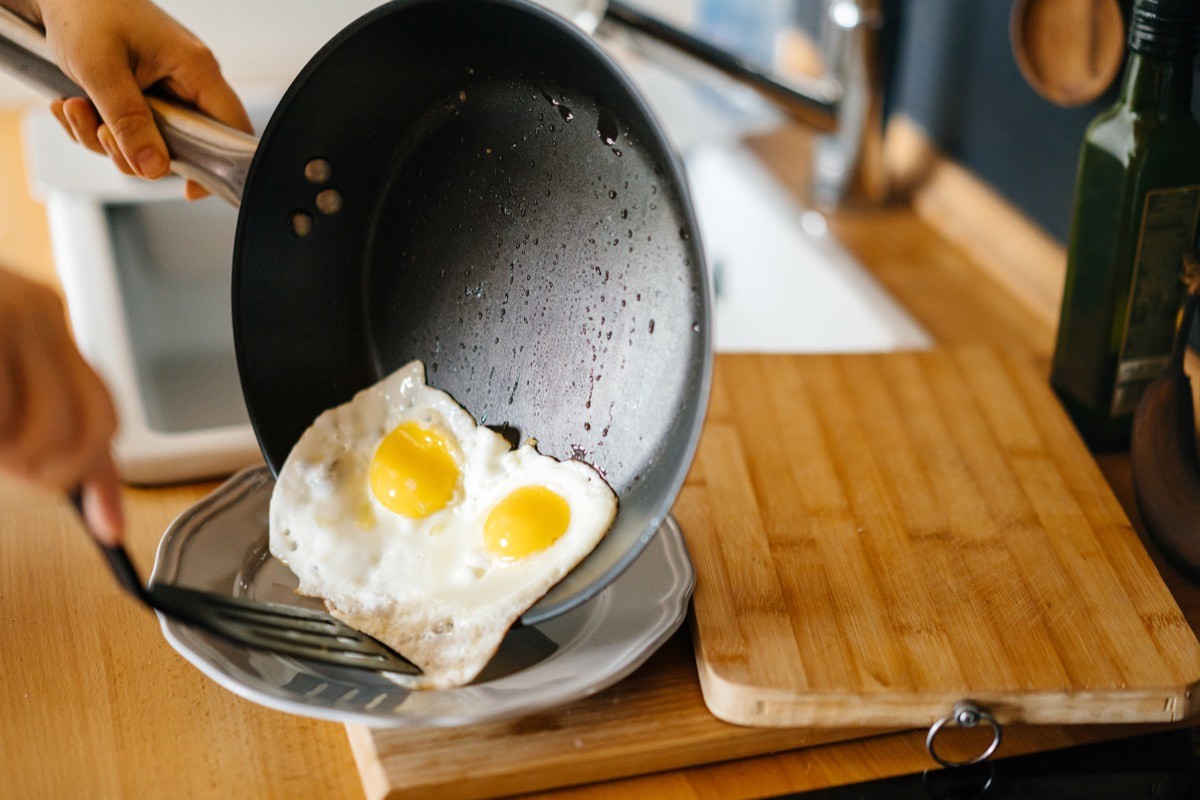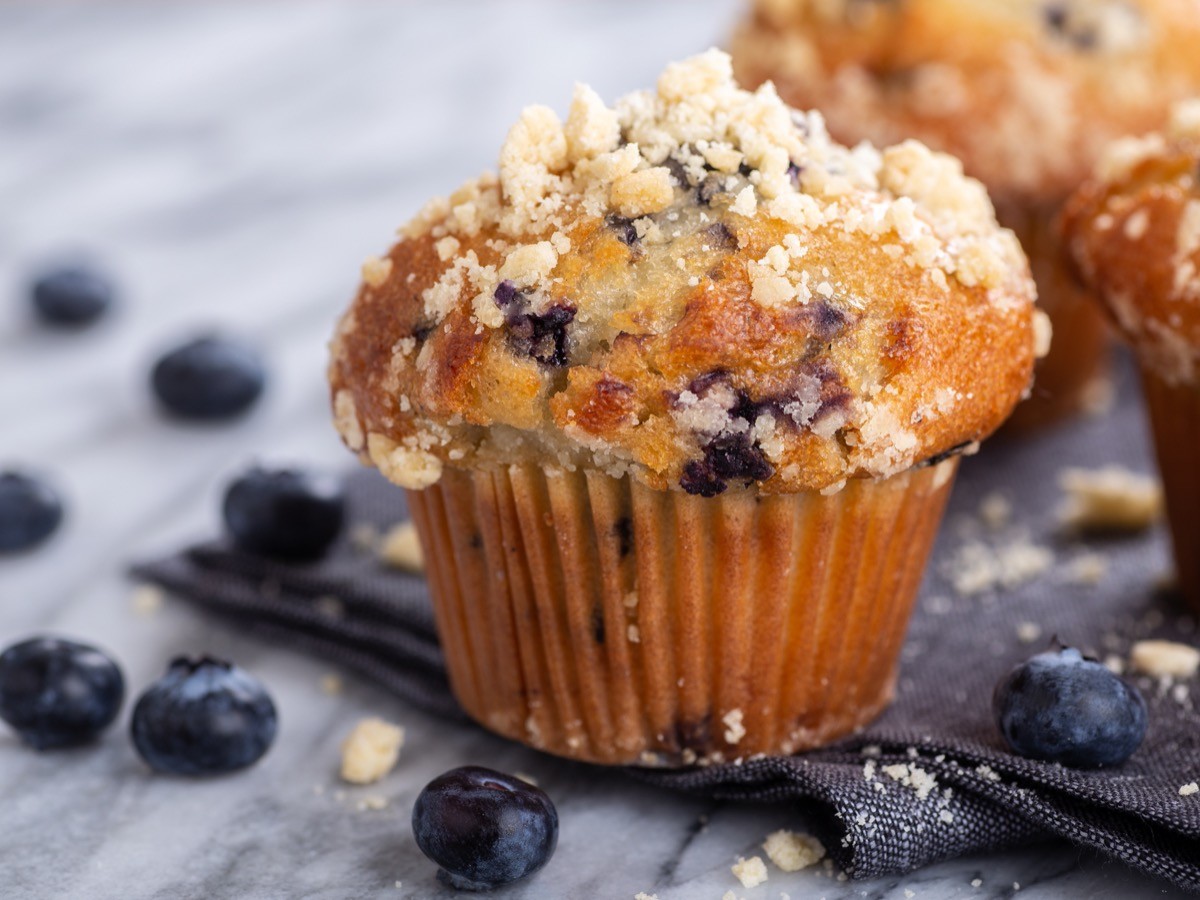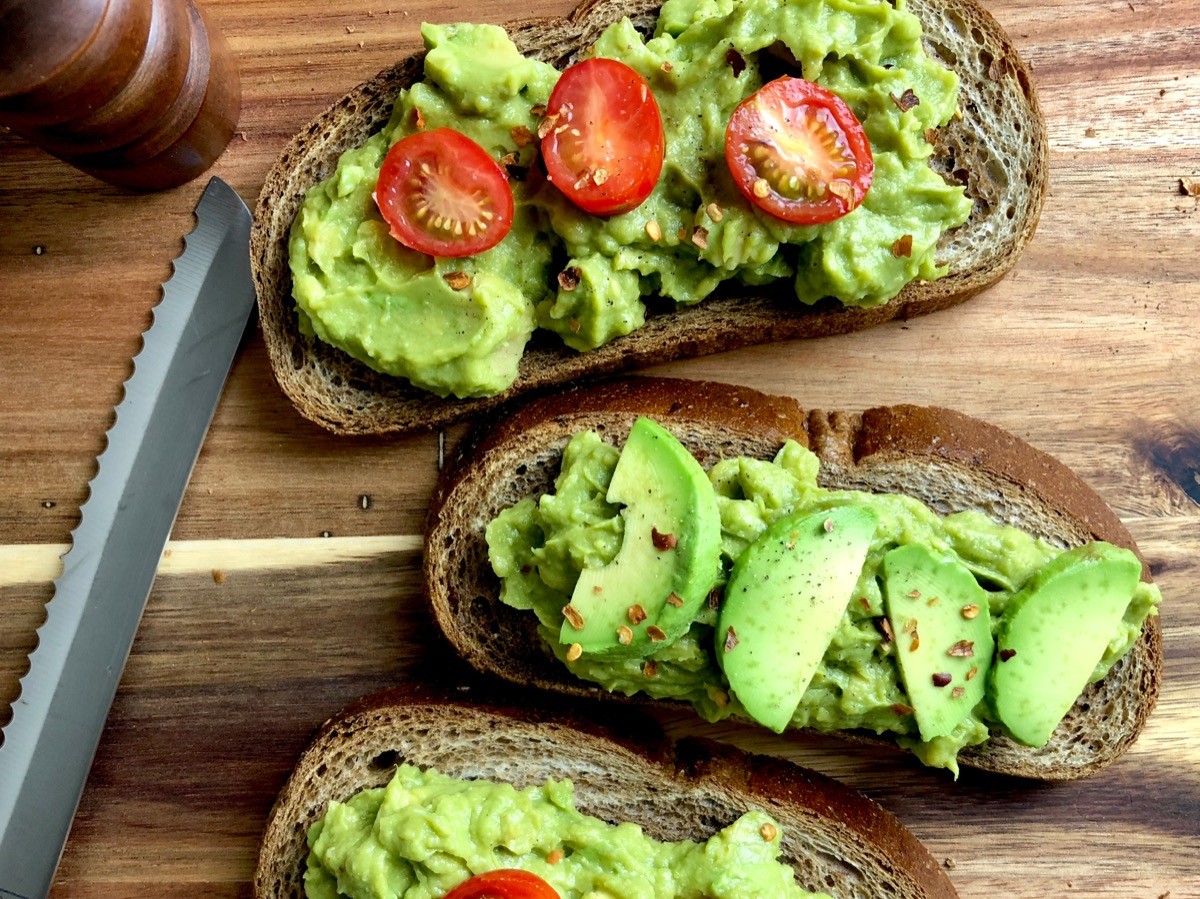Nutritionists Warn About This Common Breakfast Mistake Than Can Make You Gain Weight

Is your seemingly-healthy breakfast undermining your health, fitness, and weight loss regimen? What we eat first-thing in the morning can impact the rest of the day—and one of the worst things to choose is a breakfast that will make you hungry again in an hour or two. “I don’t like to put foods – breakfast foods or otherwise – in rigid ‘good’ or ‘bad’ categories,” registered dietitian Jennifer Kerner, RD, LD, tells University Hospitals. “Instead of regarding certain foods as forbidden, it’s better to see healthy food choices as a spectrum that takes into account moderation, portion sizes and other factors. Having said that, there are certainly things to seek and limit when looking to maximize the nutrition of your breakfast.” Here’s a common breakfast mistake nutritionists want you to stop doing.
RELATED: 11 High-Protein Breakfasts to Burn Fat.
Blood Sugar Spikes

The ideal breakfast has protein, fiber, and fat. Eating something like basic supermarket oatmeal may seem like a healthy choice, but it can spike your blood sugar. According to Foodtrainers nutritionist Lauren Slayton, a study found that “when people had oatmeal [vs eggs] in the morning, they had 80 percent more calories later in the day… So it’s not just the calorie and the makeup of what you eat, but what it then makes you do later,” she told CBS News.
Protein Is Key

Having protein especially is key for satiety and boosting metabolism. “Having eggs or some peanut butter with your toast is much better than just eating some toast by itself,” Kerner says. “Other good protein sources for breakfast include cheese, cottage cheese, turkey or chicken sausage, and smoked salmon. And if you prefer the convenience or taste of smoothies for breakfast, you can add protein to smoothies in the form of protein powder, peanut butter powder, tofu or cottage cheese.”
Unhealthy “Healthy” Foods

Check the ingredients label for those “healthy” muffins or breakfast bars—you might be shocked at the amount of added sugars and other additives. “It’s just one more reason to read your food’s nutrition label,” Kerner says. “When possible, go for the higher-fiber, higher-protein, lower-sugar foods.” Sugar in its natural form in fruit is not just fine, but actually good for you. “When you eat a piece of fruit, you’re consuming sugar in the form of fructose. But because that natural sugar is tied up in a food matrix that also contains fiber, vitamins, minerals and phytonutrients, your body digests the sugar at a slower rate, making it a longer-lasting, steady source of energy.”
Don’t Avoid Healthy Fats

Healthy fats such as in avocado and Greek yogurt will help keep you full for longer. “A meal with no fat can make you hungry again within an hour,” Keri Gans, MS, RDN, CDN, tells U.S. News & Health Report. “Let’s look at the supposed healthy breakfast of nonfat Greek yogurt, high fiber cereal and berries. Where’s the fat? I tell my patients to either switch to 2 percent-fat yogurt or to add some nuts to prevent feeling hungry. However, whenever I mention adding fat, I want to drive home the point that more isn’t better. A little fat goes a long way.”
RELATED: Over 50? It’s Time to Rethink Your Morning Routine.
Don’t Eat and Run

Sit down and actually eat your breakfast properly. “Many of my patients have found that a grab-and-go breakfast—like an apple on the drive to work—simply doesn’t cut it,” Gans says. “However, if they sit down and mindfully consume about 300 to 400 calories, they feel way more satisfied. By the time lunch approaches, those extra calories are no longer relevant, and have likely kept them from a day of overeating.”
Skipping Breakfast

Mindfully skipping breakfast for a practice like intermittent fasting is vastly different to skipping breakfast because you are in a hurry or constantly eat things that make you feel bad afterwards. Stick to whole foods when possible, and remember the protein-fiber-fat combo. “In my years working with patients, I’ve found that for some people with good intentions, there seems to be a disconnect with what they consider a healthy breakfast,” Gans says.